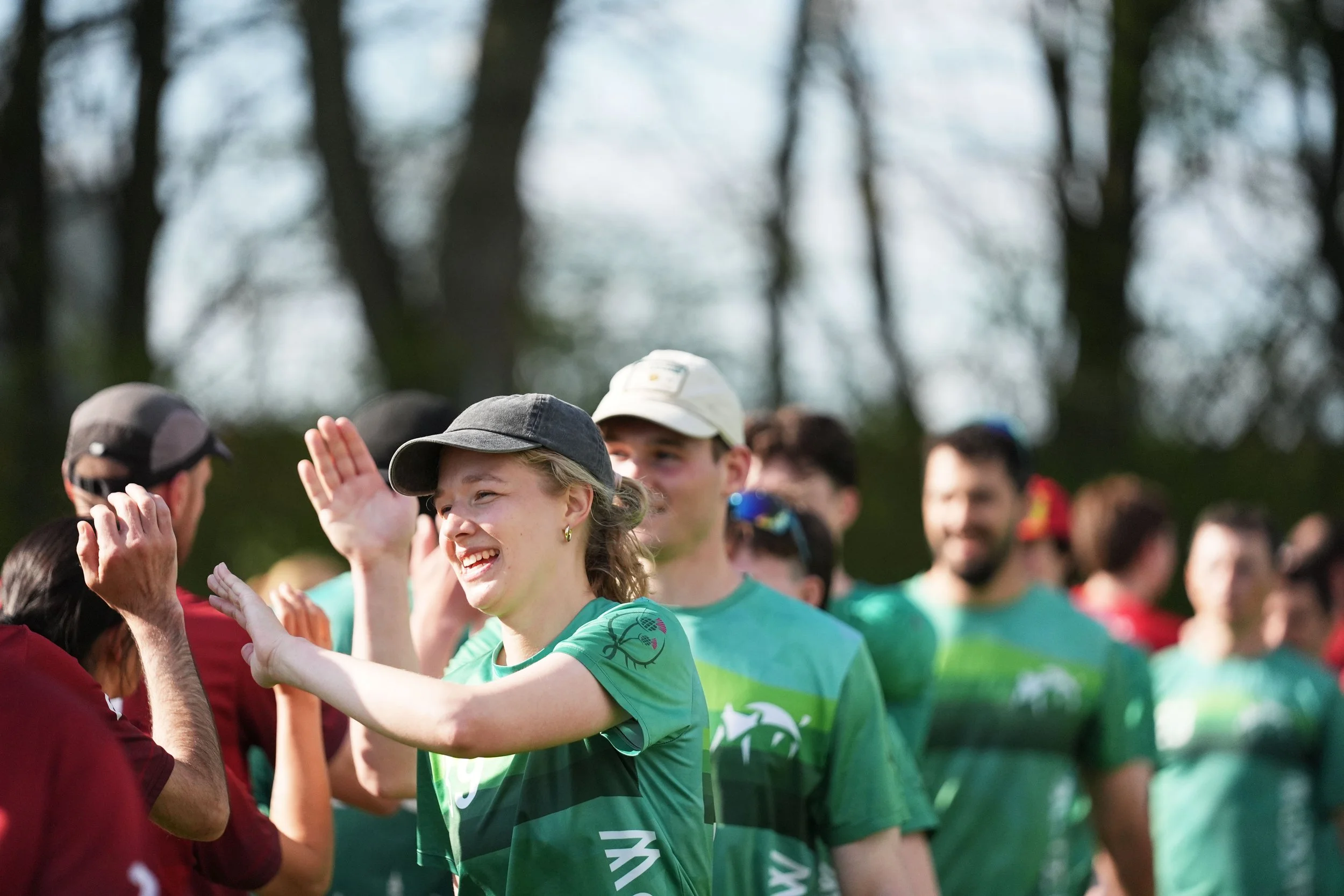
Spirit of the Game
Spirit of the Game is the most important rule in flying disc sports. It is similar to Fair Play in other sports but there is a much higher emphasis put on it in Ultimate.
It is summarised in this preamble to the rules of play:
“All players are responsible for administering and adhering to the rules. Ultimate relies upon a Spirit of the Game that places the responsibility for fair play on every player. It is trusted that no player will intentionally break the rules; thus there are no harsh penalties for breaches, but rather a method for resuming play in a manner which simulates what would most likely have occurred had there been no breach. Highly competitive play is encouraged, but should never sacrifice the mutual respect between players, adherence to the agreed-upon rules of the game, or the basic joy of play.”
ULTIMATE AND SPIRIT
As Ultimate is a self-refereed sport, maintaining spirit of the game is essential to making the game work. And good spirit makes the game more enjoyable. At a bare minimum, ultimate players should hold themselves to the same code of conduct as referees would be expected to conform to at their level of play. The following are considered essential elements of good spirit:
Know the rules
Avoiding fouls and body contact
Being fair minded and communicate respectfully
Having a positive attitude
Showing self-control
Additionally, introducing yourself to your opponent and complementing them for good play or spirit will always increase the spirit.
IMPROVING SPIRIT
Here are some ways you can improve spirit of the game in your team:
Learn the rules.
Write a rules quiz and test your teammates with it.
Realise that there are always two perspectives to every situation, and everyone’s judgement is clouded somewhat by the outcomes they desire.
When making calls, encourage your teammates to be loud and clear.
Never swear or use personal attacks.
Adopt a team code of conduct that outlines expected behaviour and penalties.
Discipline any teammate who breaks the spirit.
Introduce yourself to your opponents before the game or on the sideline.
Use the BE CALM Strategy.
Teach rookies how to be spirited
PROVIDING FEEDBACK
An important part of maintaining good spirit of the game, is by providing direct feedback. Any feedback should be constructive. There are various ways that feedback can occur:
Collect spirit scores at the end of each game, and award a spirit prize at the end of the competition
Let your opponents know at the end of the game what spirit score you are giving them, and why.
Talk to players on your own team if you think they have problems with their spirit.
Get your captain to talk to the opposing captain if there is a problem with spirit during a game.
If you are an event organiser, reward teams who get good spirit scores with automatic bids next year, and consider banning teams who get consistently poor spirit scores.
BE CALM STRATEGY
Breathe — don’t react straight away
Explain — what you think happened
Consider — What they think happened
Ask — Other players for advice (on perspective and rules) if needed
Listen — to what everyone has had to say
Make — a callloudly and clearly (and use Hand Signals)
SPIRIT OF THE GAME TIME-OUT
If there is ever an issue with Spirit of The Game during play, Captains should be aware that the Appendix to the WFDF Rules of Ultimate include a Spirit of the Game Time-out (A7):
If a team’s captain believes that either or both teams are failing to follow the Spirit of the Game (SOTG), they may call a “Spirit of the Game Time-out.
This can only be called after the start of a point and prior to the ensuing pull.
During this time-out, neither team may engage in tactical discussions.
All team members of both teams will form a “spirit circle” in the middle of the field.
The two opposing team captains shall separately discuss all current issues with adherence to SOTG, determine ways to rectify those issues, and then convey the agreement to the spirit circle.
SOTG time-outs do not affect, nor are they affected by, the number of time-outs available.




